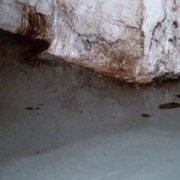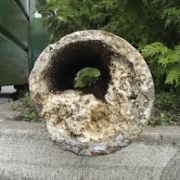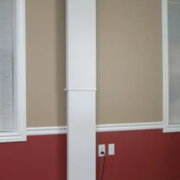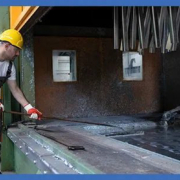Protecting Your Basement Essential Tips for Preventing Leaks
Basements are valuable spaces in our homes, serving as storage areas, recreational spaces, or 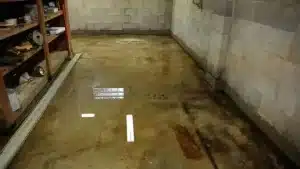
Proper Exterior Drainage:
A key factor in preventing basement leaks is ensuring proper exterior drainage around your home. Here are a few steps to consider:
1. Gutters and Downspouts: Regularly clean your gutters and ensure downspouts direct water at least 6 feet away from the foundation. This prevents water from pooling near the basement walls.
2. Grading: Check the slope of the ground around your home. Ideally, the soil should slope away from the foundation, allowing water to flow away from the basement walls. If necessary, add soil to create the proper slope.
3. Extend Drainage Systems: Consider installing foundation drains, French drains, or other drainage systems to channel water away from the foundation and prevent it from seeping into the basement.
Maintain Proper Foundation:
The foundation is the first line of defense against basement leaks. Take these measures to maintain a sound foundation:
1. Seal Cracks: Inspect the foundation for cracks and seal them with an appropriate waterproof sealant. This helps prevent water seepage during heavy rainfall or snowmelt.
2. Install a Sump Pump: Consider installing a sump pump in your basement. It collects excess water and pumps it out to prevent flooding and water damage.
3. Waterproofing: Apply waterproof coatings or paints to the interior walls and floors of the basement. This adds an extra layer of protection against moisture intrusion.
Ensure Proper Ventilation:
Proper ventilation in your basement is essential to prevent moisture buildup and mold growth. Here’s what you can do:
1. Install Exhaust Fans: Install exhaust fans in areas prone to moisture, such as bathrooms or laundry rooms. These fans help remove excess humidity from the air, preventing condensation and moisture-related issues.
2. Open Windows: When weather permits, open windows in the basement to improve air circulation and reduce humidity levels.
3. Dehumidifier: Consider using a dehumidifier to control moisture levels in your basement. It helps remove excess moisture from the air and maintains an optimal humidity level.
Regular Maintenance:
Regular maintenance plays a crucial role in preventing basement leaks. Here are some maintenance tasks to prioritize:
1. Check for Plumbing Leaks: Regularly inspect your basement for any signs of plumbing leaks, such as dripping pipes or water stains. Address these issues promptly to prevent further damage.
2. Inspect and Clean Gutters: Clean your gutters regularly to prevent blockages that can lead to water overflow and potential basement leaks.
3. Monitor and Address Foundation Cracks: Regularly inspect your foundation for any new cracks or signs of water infiltration. If you notice any issues, consult a professional for appropriate repairs.
Consider Waterproofing Professionals:
If you are experiencing persistent 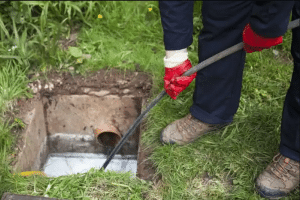
By following these essential tips and taking proactive measures, you can significantly reduce the risk of basement leaks. Remember, prevention is key when it comes to protecting your basement, and investing time and effort in maintenance and necessary repairs will pay off in the long run. A dry and leak-free basement will not only provide peace of mind but also preserve the value and integrity of your home.
